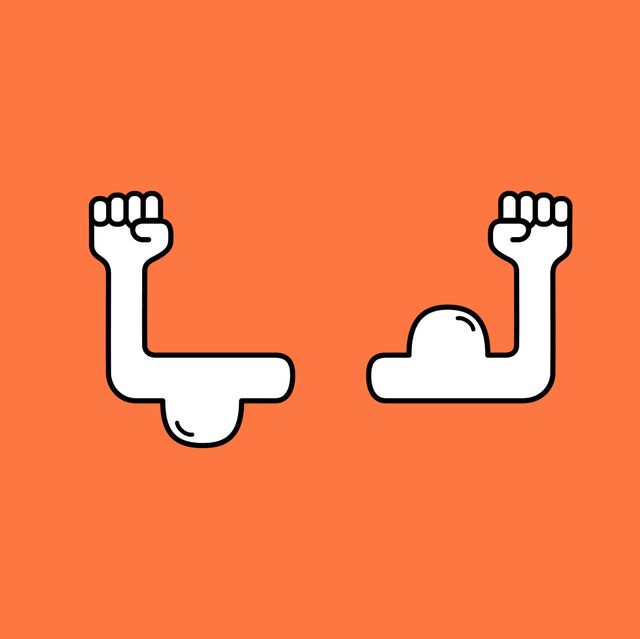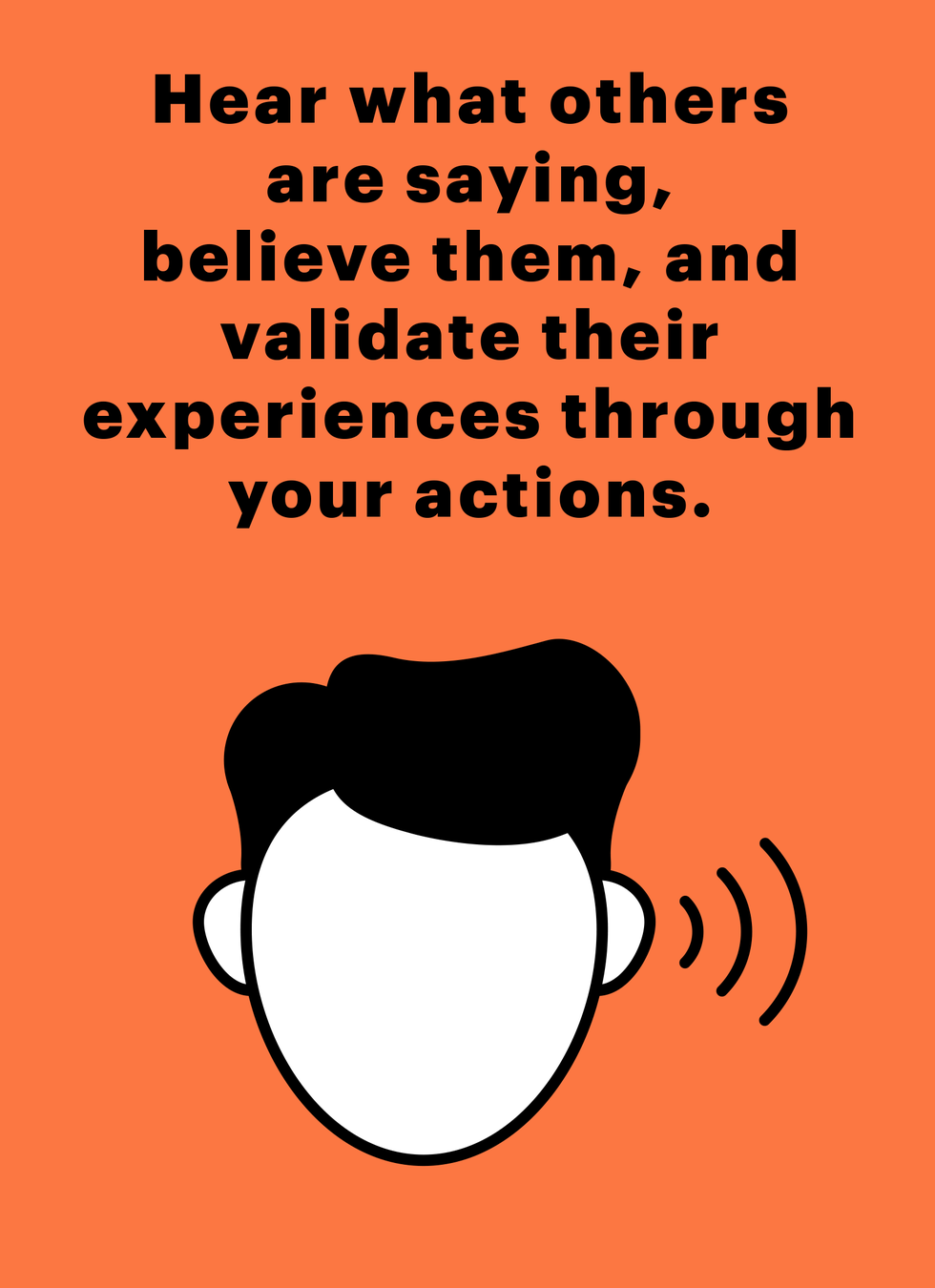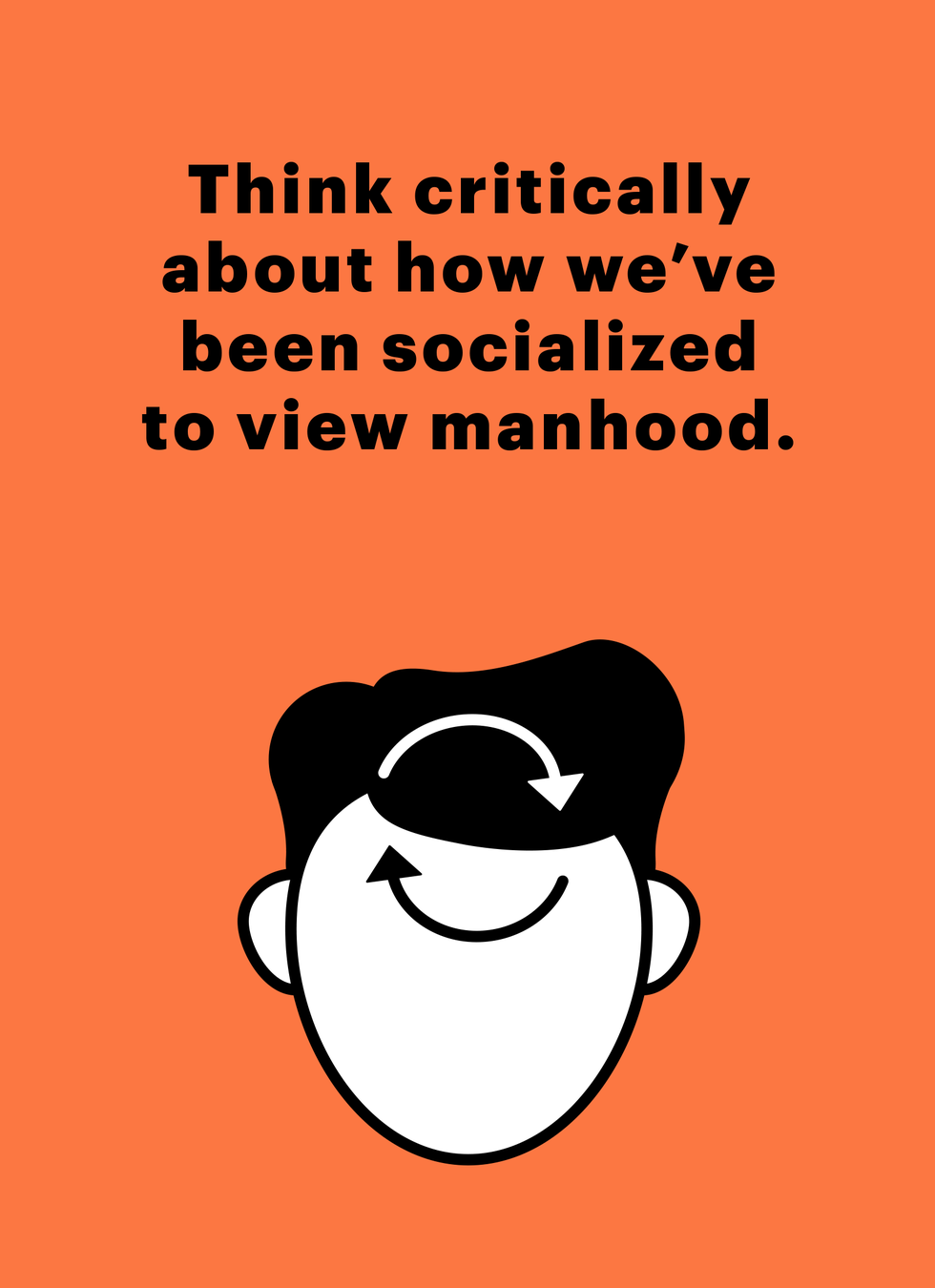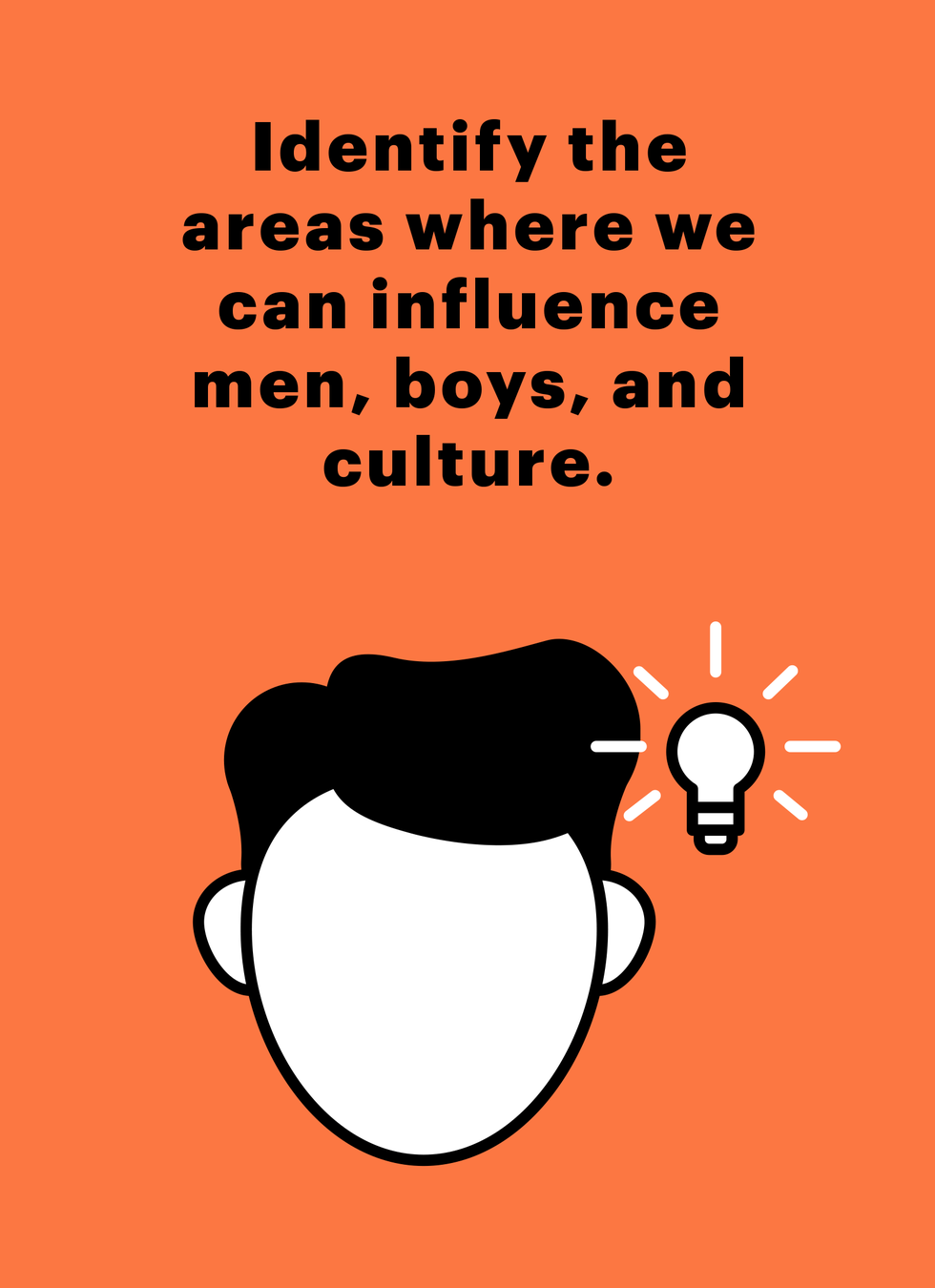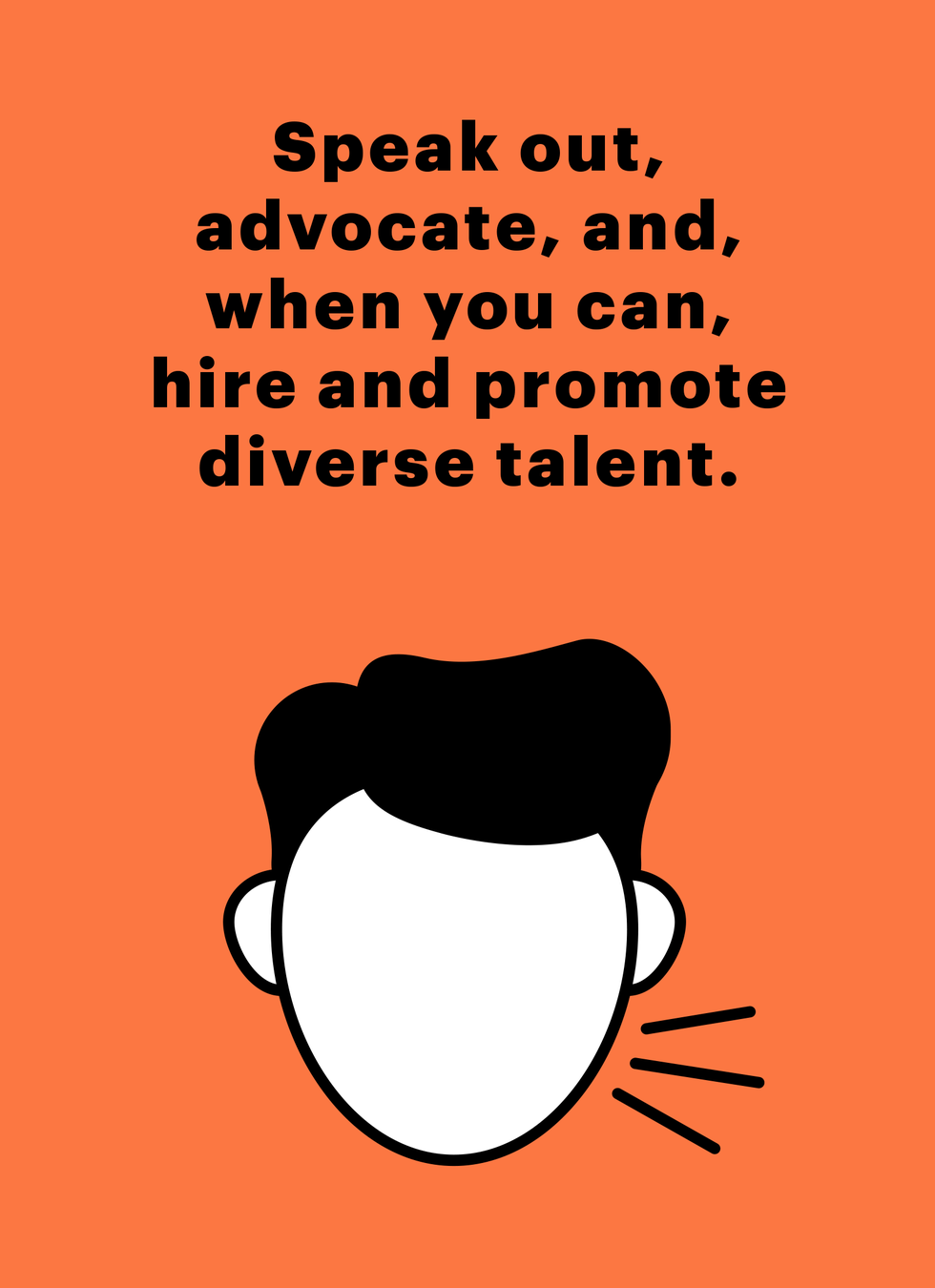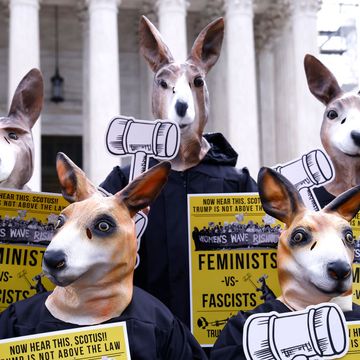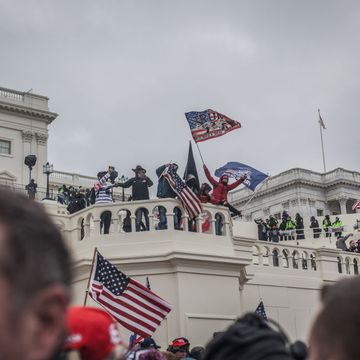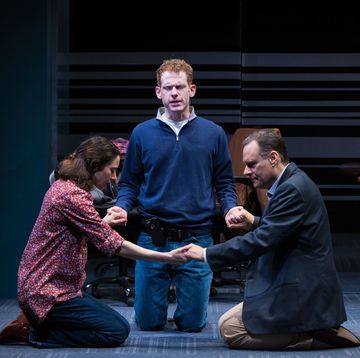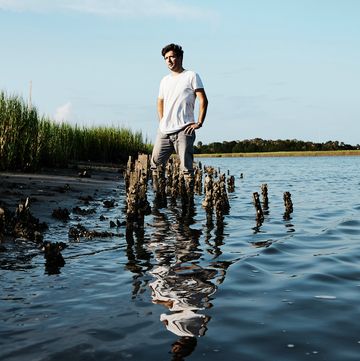It's a question both of us have been asked—on the playground, at school, when hanging out with the guys. Even if the question wasn't explicitly stated, it was a subtle expectation we got from parents, coaches, teachers, and friends. Don't cry. Don't let anyone know you're scared. Don't be vulnerable. Man up. Be a man.
We, like millions of other boys, have been socialized to believe strength was synonymous with manhood. The hyper-masculine ideal was to be powerful, fearless and successful. Of course the natural conclusion was that women were the opposite. Media and culture bombard us with messages saying women are objects, property, and have less value than men, and this has allowed violence and discrimination against women and girls to persist at epidemic levels. The worst part is that as men we have been for the most part blind to these messages, making it that much harder to understand or figure out how to be helpful or as we like to say, an ally to the women in our lives.
#MeToo has brought about an era of forced self-reflection. For the first time in history, men have been asked to examine our past behaviors and think about the impact they might have had on women. For many of us, it’s been extremely uncomfortable, but we believe this discomfort can be used to foster significant and necessary change that will benefit both women and men. Our intention is to encourage men to not turn away as this movement plays out, but to be active allies. In a #MeToo-themed episode of "Man Enough," we asked ourselves and our viewers to explore that discomfort, embrace a healthy, respectful manhood, and become part of the solution to end sexual harassment and sexual violence. The answers that came out of the episode were honest, challenging and, we believe, potentially game-changing.
Here are some things all men can do.
Yes, it seems easy, and we’ve heard our loved ones say this our entire lives, but the truth is, as simple as it seems, listening is a real and tangible solution. But let’s take it a step further. Listening must turn into action, and that can’t happen unless we actually HEAR what women are saying. We must listen, hear them, believe them and validate their experiences through our actions. We intentionally included women’s stories in the episode in a way that was separate from the dinner conversation and uninterrupted. We wanted survivors to feel our accountability to them—so they know that we hear them, believe them, and support their courage.
We must think critically about how we’ve been socialized to view manhood, and about how we act as a reflection of that socialization. What did we learn from our grandfathers, fathers, brothers? What do we internalize from the media and men’s magazines? Does it work for us? Are we happy? Is there anything we’ve learned that we feel conflicted about? We must ask these questions, and by doing so, realize that it doesn't make us less masculine, but in fact the opposite. Male socialization is deeply rooted in silence. Whether it’s “No Girls Allowed” or “Bros before Hos,” our “guy code” has promoted silence over morality and taught us that sharing our feelings—especially when it comes to personal trauma—is the worst thing we can do.
We must be clear about why we care about these issues and identify the areas where we can influence men, boys and culture. There are so many men afraid to say the wrong thing. We can’t let that fear keep us from coming to the table. All men have influence and a platform to spur positive social change. We can all be part of the solution.
We must act. Talk about this with other men! Dip your toes in first, then get comfortable. Speak out against violence and discrimination. Advocate for equal pay in your industry. Promote talented female and gender non-conforming leaders.
We’ve spent so much time calling men out; now, it’s time to call men in. Let's redefine manhood to include physical strength and emotional literacy, to embrace equity, and to value all people. Let’s take that phrase back. Let’s show the women in our lives and men around the world what it really means to be Man Enough.
For more on how to be a better ally, watch Tony Porter's TED Talk, "A Call to Men," Justin Baldoni's TED Talk, "Why I'm Done Trying to Be 'Man Enough,'" and watch the series, "We Are Man Enough," on Facebook.
Design by Mike Kim
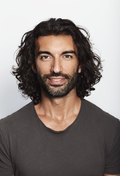
Tony Porter is an author, educator and activist working to advance social justice issues and Chief Executive Officer of A CALL TO MEN. Porter is internationally recognized for his efforts to prevent violence against women while promoting a healthy, respectful manhood. He is a leading voice on male socialization, the intersection of masculinity and violence against women, and healthy, respectful manhood.
